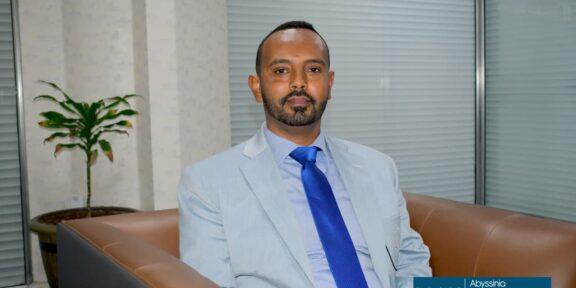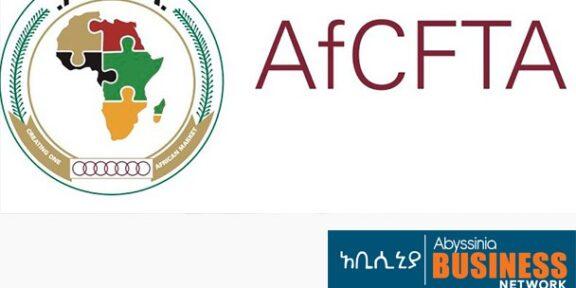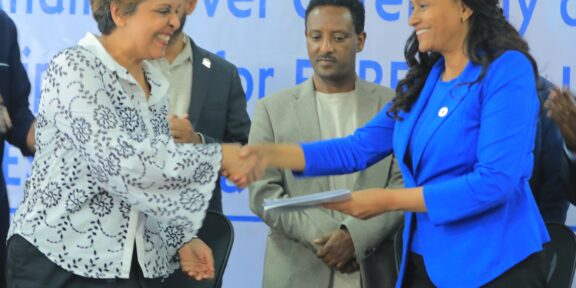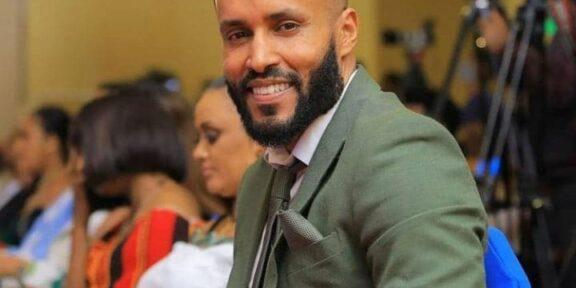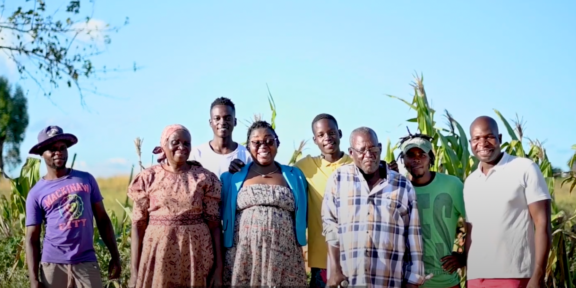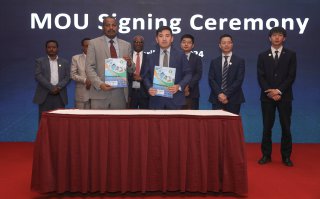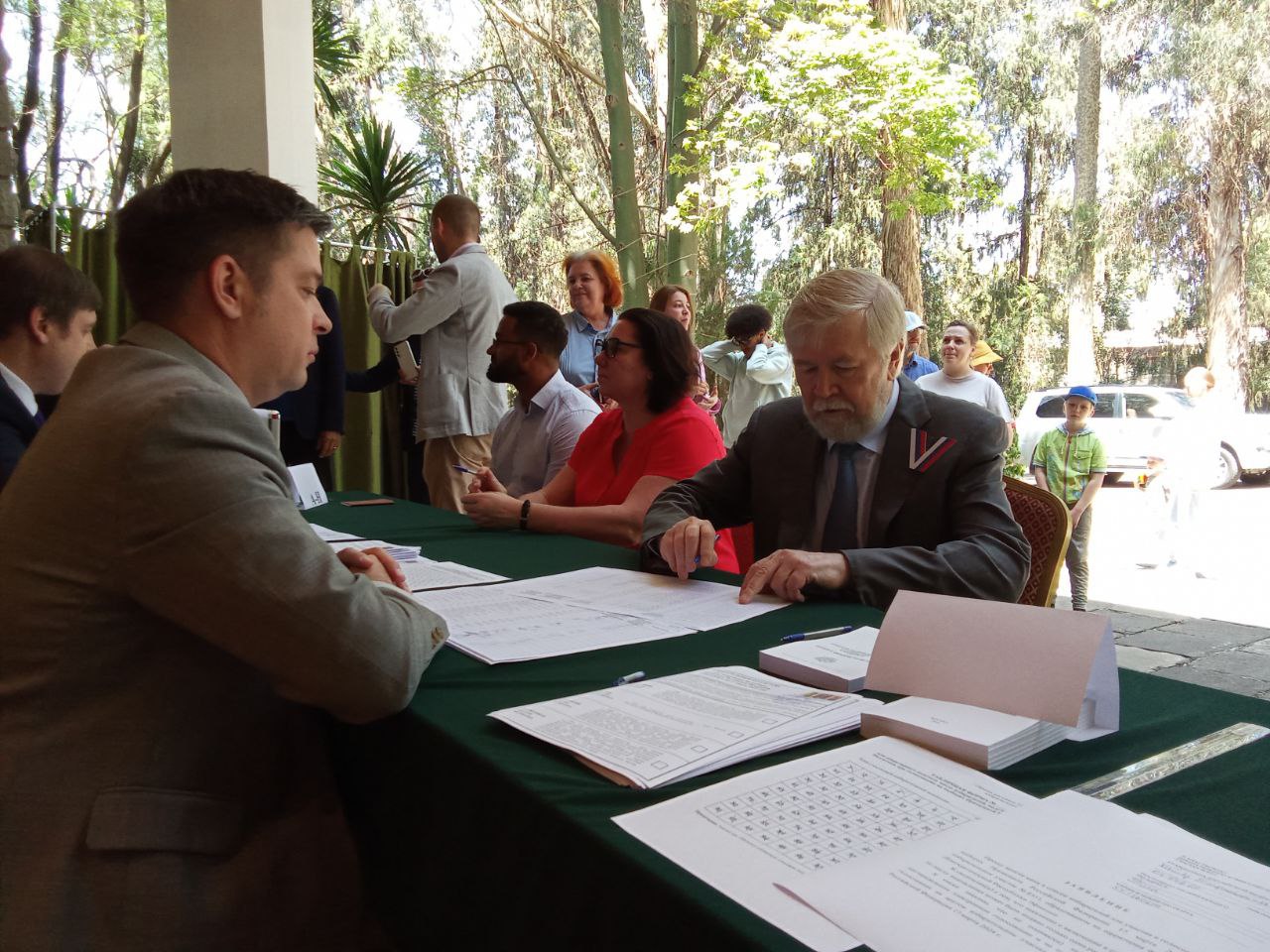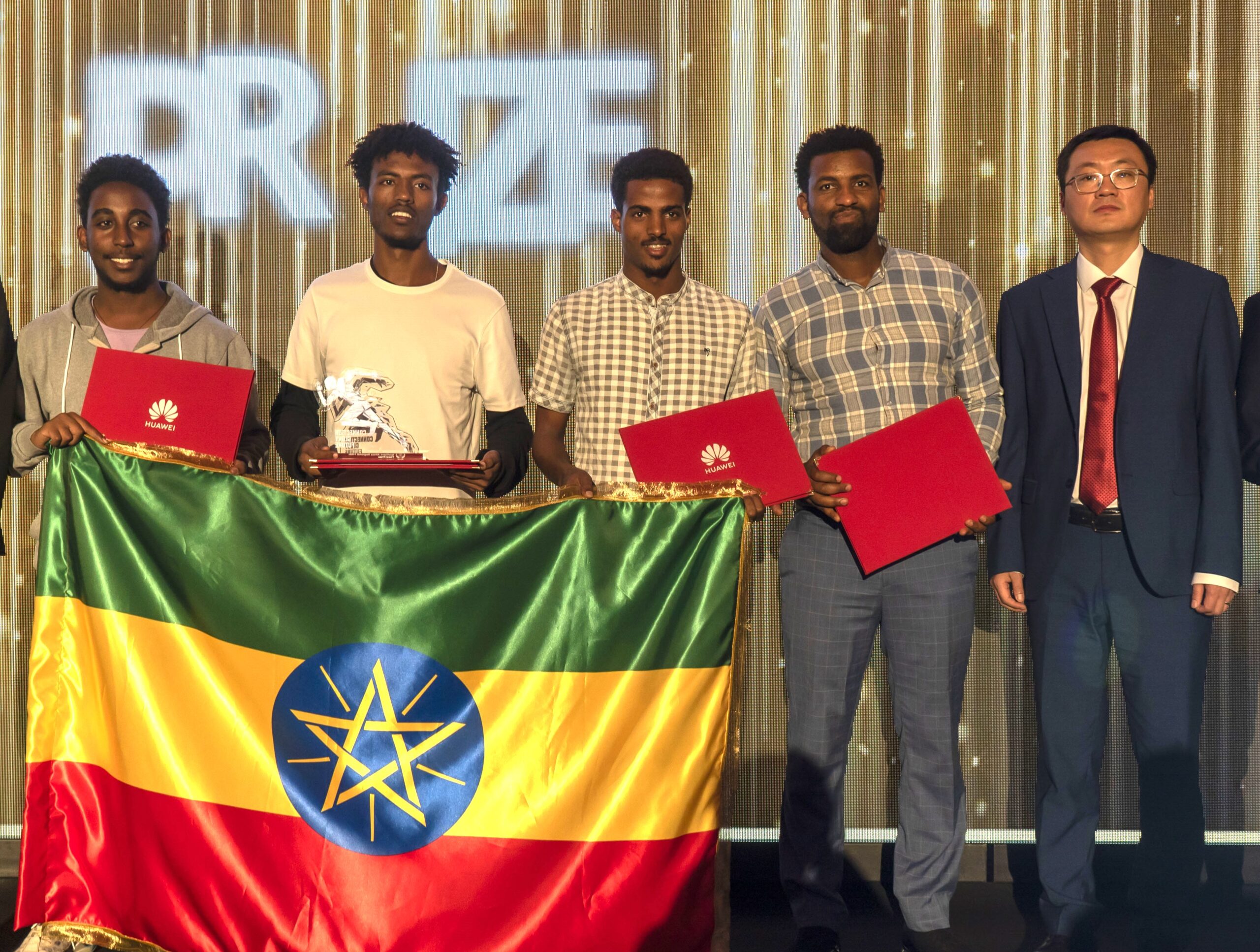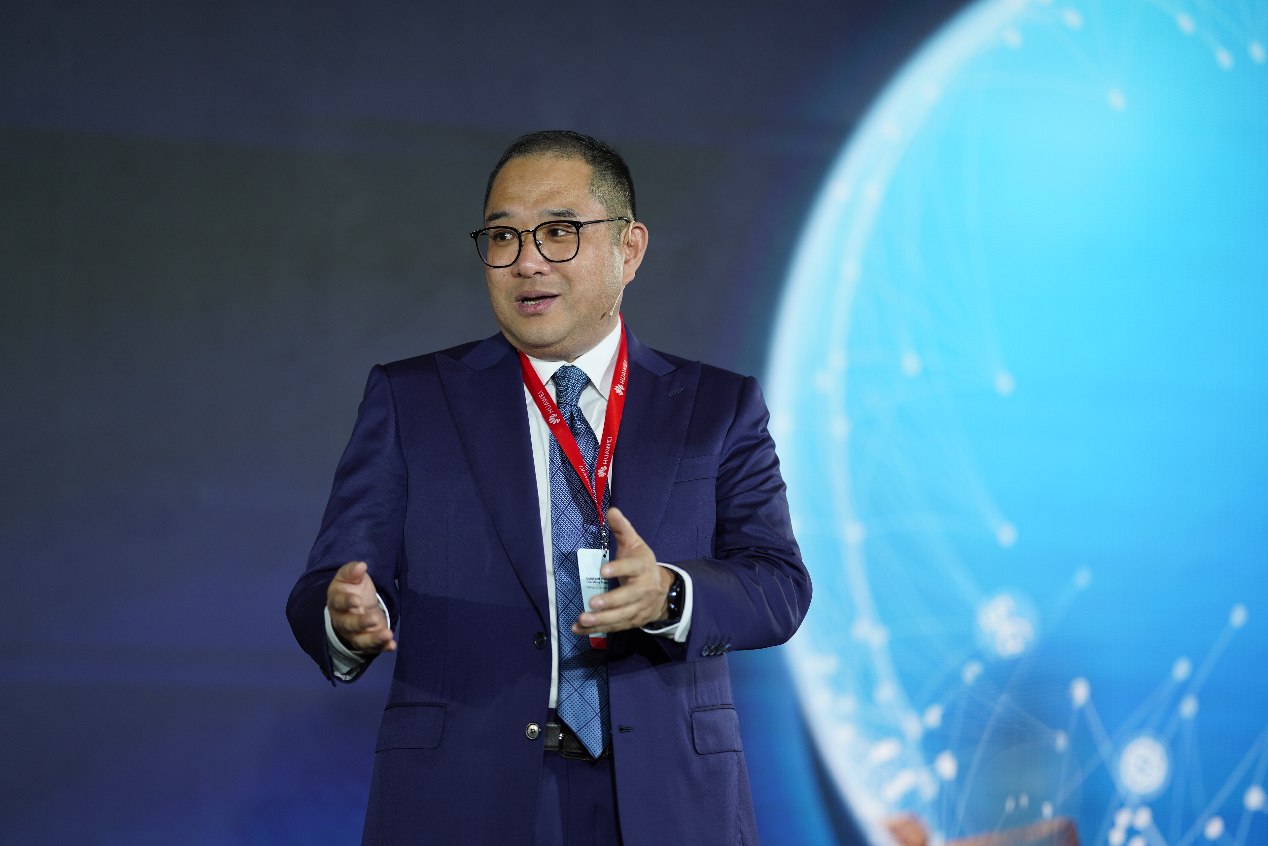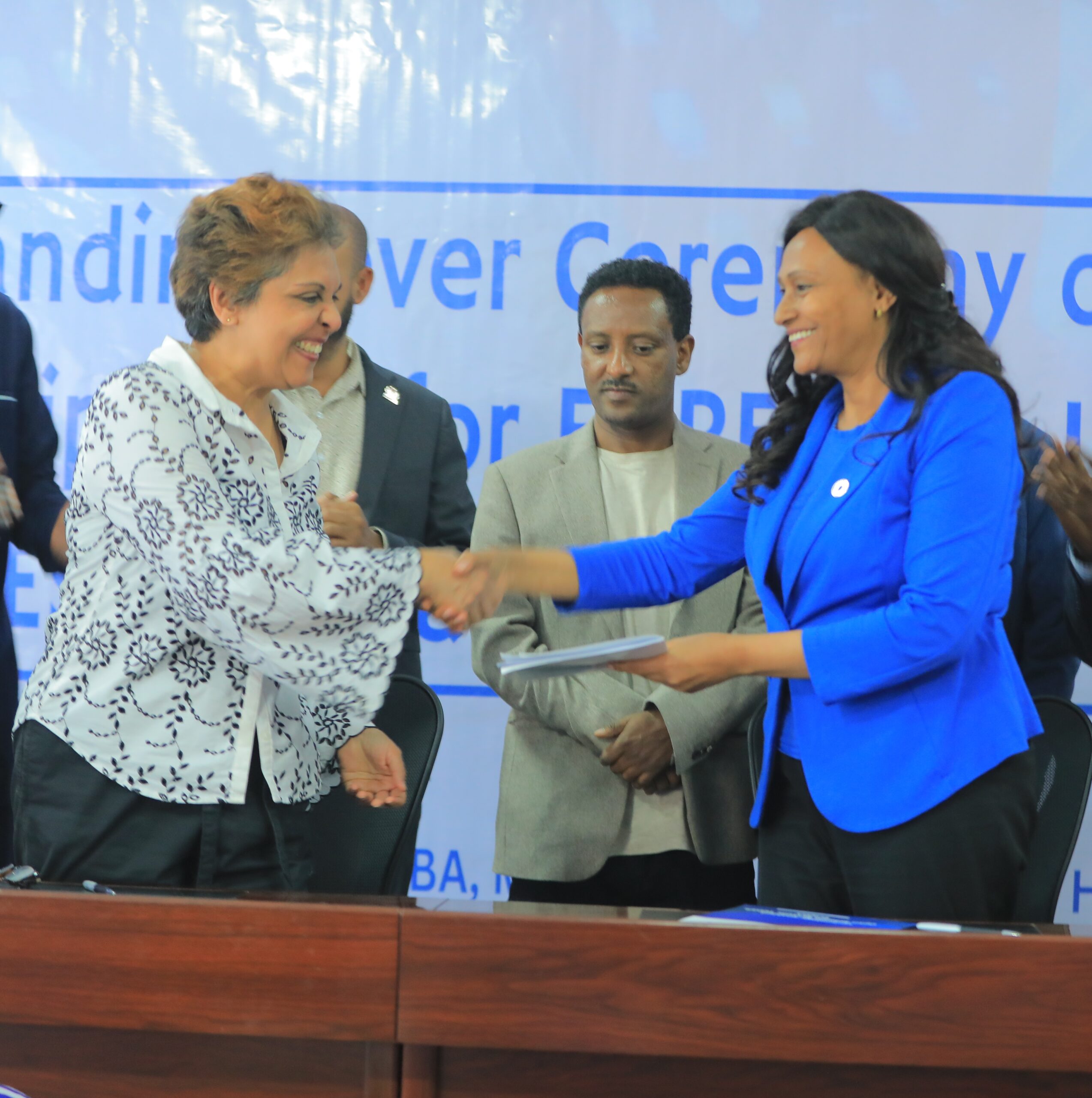A Czech expert of hydrogeology, Jiří Šíma, has been in Ethiopia for more than three decades for professional activities and projects of ground water resource development here in the East African country. Having graduated from Charles University of Czech in 1978, Sima came to Ethiopia in 1984 and joined the Geological Survey of Ethiopia as part of the international development assistance program and cooperation which the then socialist Czech Republic had forged with its one of African counterparts at that time.
Šíma has been involved in various water management and environmental projects in Ethiopia, and he has, along with Ethiopian experts, also created a series of hydrogeological maps of the country’s water resources and the maps have been documented with the archives of Geological Survey of Ethiopia.
Šíma has now joint ventured for a company called AquaCon Engineering plc. which carries out different projects, including among others, investigation of ground water resources, design of well drills and organizing construction of water supplies schemes.
ABN staff, Samuel Zewdie has recently approached Šíma to hear from the horse’s mouth of the robust personal experience in the field as well as his personal and organizational contribution to Ethiopia’s ground water development, achievements, and challenges among other related issues.
Speaking of his early formal business engagement after graduation, Šíma says he has started to work with various companies in Czech Republic for ground water resources mapping and development.
Having been assigned to Ethiopia in line with international development assistance of Czech to another socialist country in Africa, Šíma, along with local colleagues at the Geological Survey of Ethiopia, started his works of mapping the country’s ground water resources.
“Atthat time, it was not easy to publish maps. We started with color pencils. Nowadays we are working in geographical information systems; it is relatively a big difference; and it was time consuming at that time to produce one map. And this is how we started our cooperation.” says the Czech hydrologist, reminding that the cooperation was, following political changes in both countries, discontinued for some years and it resumed in 2001 when Czech Republic launched development assistance program again.
“This is very important component of our work, and this is very important for country like Ethiopia to find water; not to lose money by nonsense drilling; drilling from an area which is not promising. This is one of our achievements with our Ethiopian colleagues,”
The expert has been involved in ground water resource mapping program, which has covered the whole country and been implemented for a couple of decades to have pieces of maps produced, and which, according to Šíma, has helped the success of well drillings that have been carried out later on.
He stated that some 40 years ago the success with well drillings was only about 40 percent as there was no background information on ways of finding the resource and other related issues such as the depth and yield of water points.
After the maps have been published, the successes with well drilling has been raised to 70 and 80 percent. “This is very important component of our work, and this is very important for country like Ethiopia to find water; not to lose money by nonsense drilling; drilling from an area which is not promising. This is one of our achievements with our Ethiopian colleagues,”he says.
With regard to water development and management, the expert says, there are two aspects of focus: one is to find water with good quality and good yield for the provision of the utility to households, industry and agriculture. The second aspect is to maintain the quality of the water towards ensuring the provision of safe drinking water to people.
On another engagement, he says they have been involved in a four year initiative carried out in partnership with the Agriculture Transformation Agency, whereby shallow ground water projects were implemented for irrigation of small scale farming of crops, vegetables and fruits.
“This is how we are working and how we would like to contribute for development of Ethiopian industry, Ethiopian agriculture in the future,” he says.
Speaking of his company, AqauCon, which has been joint ventured among three partners, two Czechs and one local partner, Šíma says the joint venture has been realized after they have well recognized Ethiopia and its potential in the sector.
The company has been working on different projects, starting from ground water resources investigation, design of wells drills, and organizing construction of water supplies schemes.
“This is good for us as well as for Ethiopian partners because we can share relatively a little bit different experiences from European environment and African environment,” says Šíma, also noting that joint efforts on such projects would be successful as they are likely financed by development agencies and partners, including WB, UNICEF and Czech Development Agency, among others.
As to challenges he has come across in Ethiopia, the Czech geologist states that working in remote areas like Somali region has been challenging in terms of distance and high temperature, especially for people who are from outside the region. In addition, power cut and internet problem are among the minor challenges.
“The intervention is made at two levels: one is training of technicians who run and work on maintenance of water supply systems, and the second one is experience sharing with students of hydrology, for which his company has close contact with Addis Ababa University, Hawassa University, and Arba Minch University.”
Asked about issues related to realizing full coverage of safe drinking water across the country, Šíma stated that discussions have been underway with regions and postgraduate students of Addis Ababa University on ways of ensuring safe drinking water coverage in the country by applying good methods of finding good water, good yield and good quality as well as by addressing the problem of local knowledge and management of water resources.
He stated that shortage of well trained technicians for maintenance and smooth running of water supply systems is a critical problem in the country. Šíma has also reiterated that there is shortage of trained technicians, particularly in rural areas, as they leave their jobs of running and maintenance of water supply systems for other activities such as working garage to have better incomes.
As scattered settlement of inhabitants is one of the factors that affect water supply efforts, Šíma noted that his company and its partners are preparing for integrated development plans which involve integrated development activities in the areas of urban planning, land use as well as management of water and other natural resources.
Responding to a question about the contribution made in terms of human power development in the sector, Šíma said that the intervention is made at two levels: one is training of technicians who run and work on maintenance of water supply systems, and the second one is experience sharing with students of hydrology, for which his company has close contact with Addis Ababa University, Hawassa University, and Arba Minch University. He also said further cooperation and joint efforts are important also in other related technologies such as pump manufacturing, whereby Czechs could share their knowledge and experience.
Appreciating Ethiopia’s policy and commitment to the development of water resources, the Czech geologist has underlined the need to ensure that trained technicians remain with their normal activities of running and maintenance of water supply systems. He has also stated that strong management of water supply system is required once the projects have been realized as they normally run relatively for longer time of about 30 years.
“There is lack of technicians working on maintenance, particularly in rural areas; we need more and more technicians to working on that. Relatively, we develop good resource, good groups of people working on direct development in drilling and everything. But, what we need more is the technicians running the system,” says Šíma.


